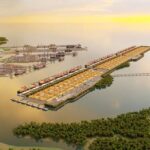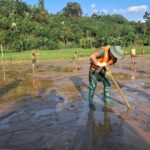Cashews are a specialty of Vietnam, which is renowned as the world’s leading producer and exporter of this crop.
According to preliminary statistics from Vietnam Customs, in the first seven months of 2024, the country spent over $1 billion on importing nearly 786,530 tons of raw cashew nuts from Cambodia. This represents a 34.1% increase in volume and a 26.3% increase in value compared to the same period last year.
Notably, the volume of cashews imported from this neighboring country accounted for 47.2% of Vietnam’s total cashew import turnover, a 9.6 percentage point increase compared to 2023. With 786,530 tons, Vietnam has purchased almost the entire (95%) raw cashew nut output of Cambodia in the first seven months of 2024.
In contrast, Vietnam exported approximately 478,000 tons of processed cashews, generating over $2.77 billion in revenue during the past eight months. This translates to a 22.9% increase in volume and a 21.7% increase in value compared to the corresponding period in 2023.
Evidently, Vietnam remains the world’s foremost producer and exporter of cashews. However, the question arises: why has the country been importing substantial quantities of cashews from other nations, particularly Cambodia, in recent months?
Why is Vietnam Increasing Cashew Imports Despite Being the Top Global Producer?
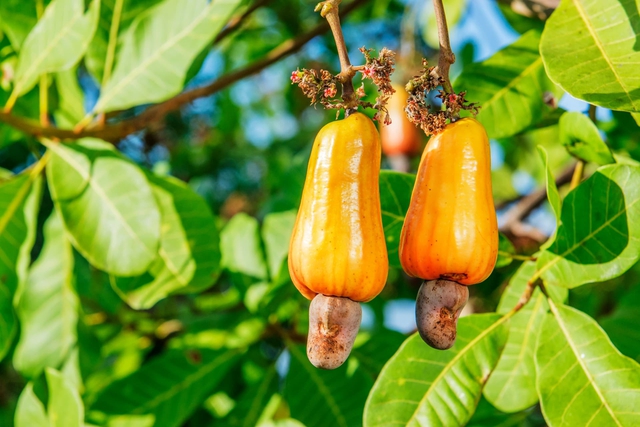
Vietnam is currently the world’s largest producer and exporter of cashew nuts. Photo illustration
Addressing this issue, Mr. Pham Van Cong, Chairman of the Vietnam Cashew Association (Vinacas), explained that domestic raw material sources can only meet a small portion of the demand for cashew processing. Consequently, the industry heavily relies on imported raw cashews, with a significant proportion originating from Cambodia.
Additionally, in recent years, neighboring Cambodia, along with African countries, has implemented policies to promote the development of their domestic cashew processing industries and reduce raw cashew exports. Specifically, these countries have introduced attractive incentives to encourage investments in cashew processing plants, coupled with regulations and close monitoring of minimum selling prices for exported raw cashews. Concurrently, they impose high export taxes on raw cashews while exempting processed cashews from taxation.
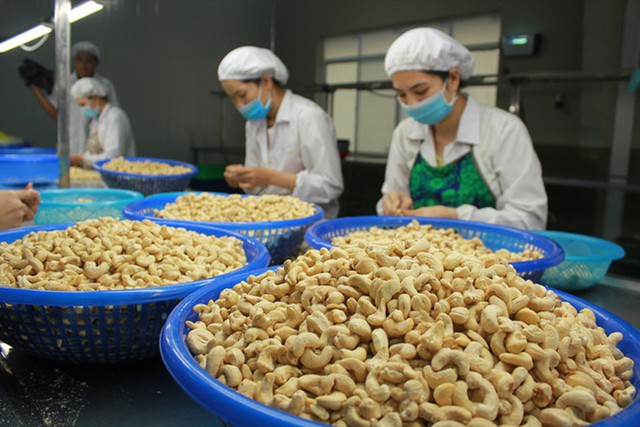
Vietnamese cashews are favored in many international markets. Photo: Vinacas
The Vietnam Cashew Association cautions that if the country fails to secure raw material sources, its top global position in this industry may be jeopardized. For now, given the challenges in expanding cashew cultivation areas, Vietnamese cashew enterprises can collaborate to explore and develop raw material sources in Cambodia and Southern Laos. This includes cooperating in research and transferring cultivation techniques and plant varieties to these countries. Subsequently, the enterprises can import the raw cashews back to Vietnam for processing.
According to a report by the Cashew Association of Cambodia, Vietnam’s neighboring country has emerged as the second-largest producer of raw cashew nuts globally, yielding 830,000 tons in the first seven months of 2024.
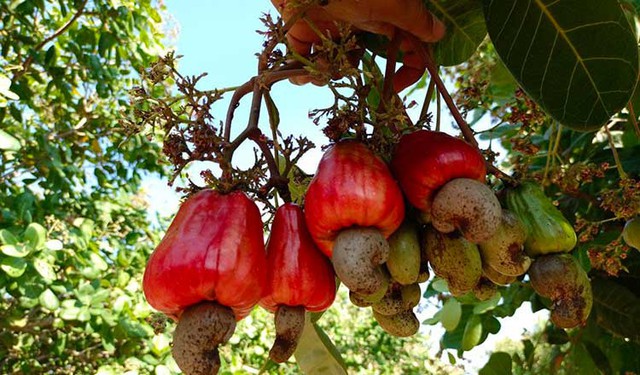
Cambodia becomes the world’s second-largest producer of raw cashew nuts. Photo: CAC
Through its National Cashew Policy for the period 2022–2027, Cambodia is striving to establish itself as a prominent producer and exporter of cashews. The country aims to boost cashew production, develop processing facilities, diversify export markets, and streamline trade facilitation programs.
With this new policy in place, Cambodia expects to increase its cashew processing capacity from 5% to 25% by 2027 and at least 50% by 2032.
In recent years, Cambodia’s cashew industry has witnessed exponential growth, becoming the primary supplier of raw cashews to the Vietnamese market.
References: CAC, Customs, Vinacas
Deputy Prime Minister: Comprehensive Environmental Impact Assessment of the Can Gio ‘Mega Port’
As the Can Gio port project is associated with Vietnam’s first-ever World Biosphere Reserve, it holds immense value and significance for Ho Chi Minh City and the region. Due to its potential environmental implications, Deputy Prime Minister Tran Hong Ha has emphasized the need for a thorough and comprehensive assessment of its environmental impact.
The Mighty Thác Bà Hydropower Plant: Unveiling the Power Within
The Thac Ba Hydropower Plant is a formidable power source located on the Chay River in the Yen Bai Province. With a capacity of 120 MW, this plant has been a pivotal energy provider for the region, thanks to its construction and ongoing operation by the Thac Ba Hydropower Joint Stock Company, with initial support from the Soviet Union (now the Russian Federation).
“Innovation for a Sustainable Future: Insights from Ms. Đặng Huỳnh Ức My at ‘Gateway to ASEAN 2024′”
On September 6, the UOB Singapore’s “Gateway to ASEAN” conference, themed “ASEAN: Crossroad to the World,” took place in Ho Chi Minh City. Ms. Dang Huynh Uc My, Chairman of the Board of Directors of TTC AgriS and Betrimex, participated in a panel discussion on “Innovation for Sustainability,” offering insightful solutions for businesses to thrive sustainably in the digital age.

